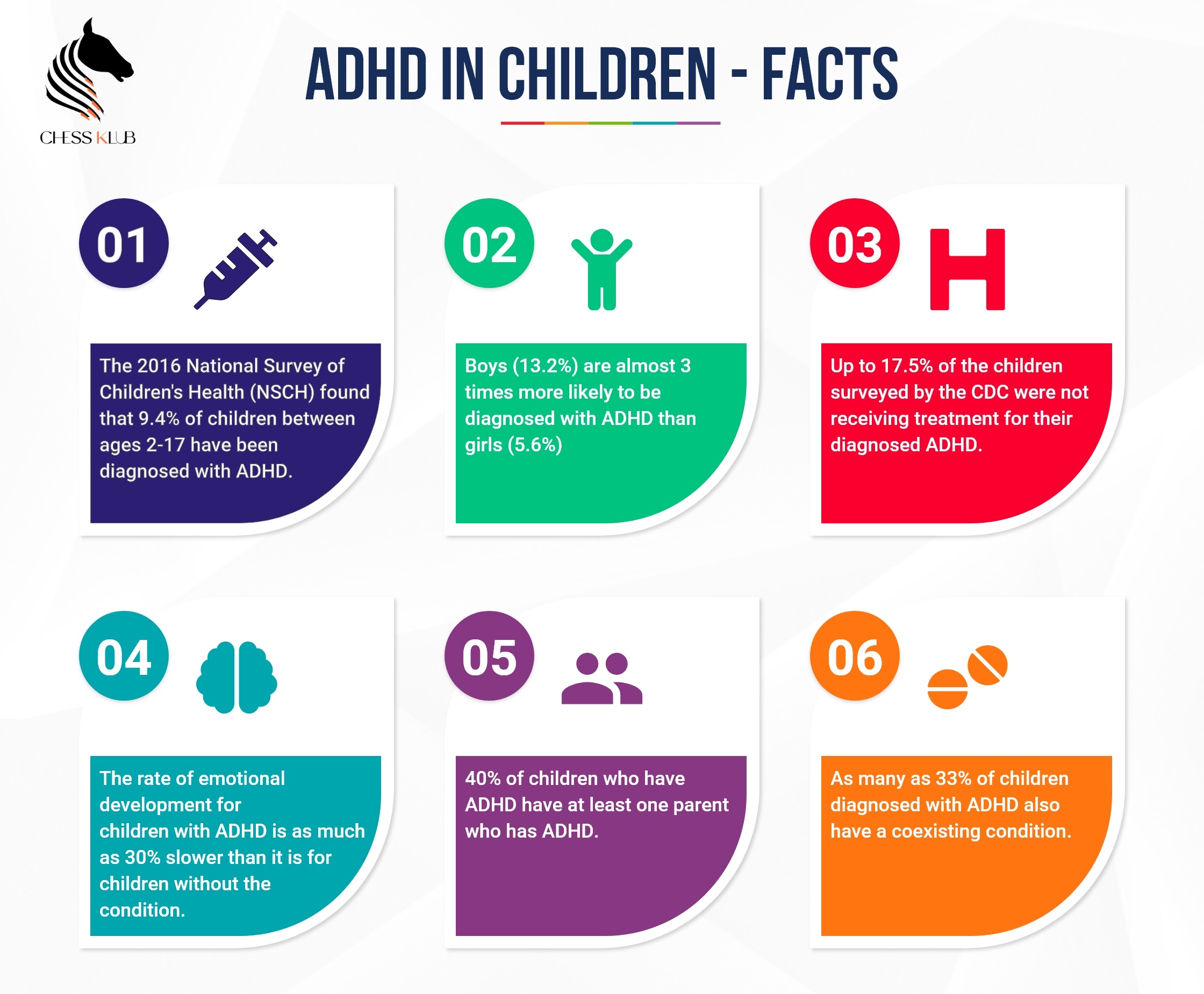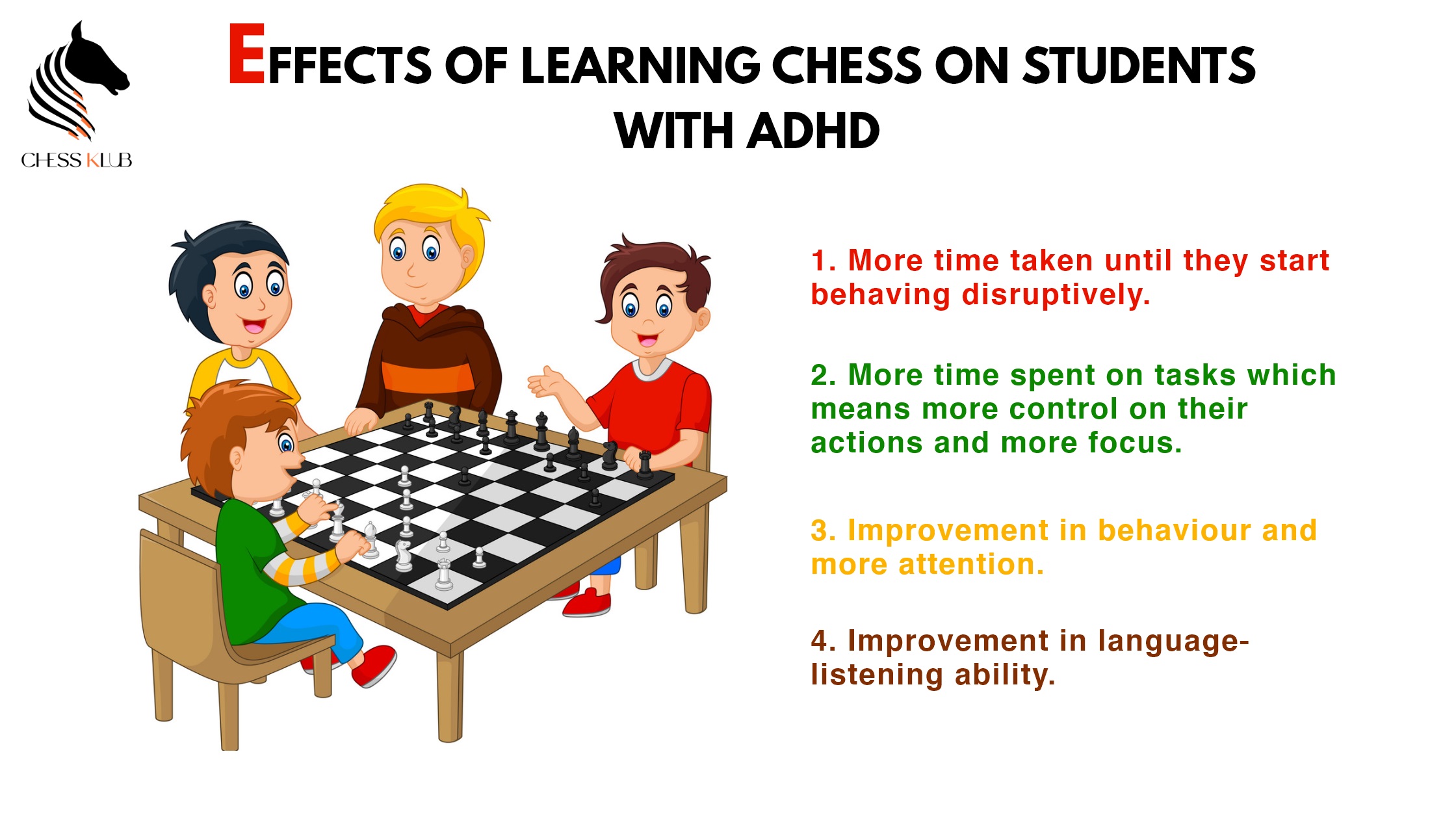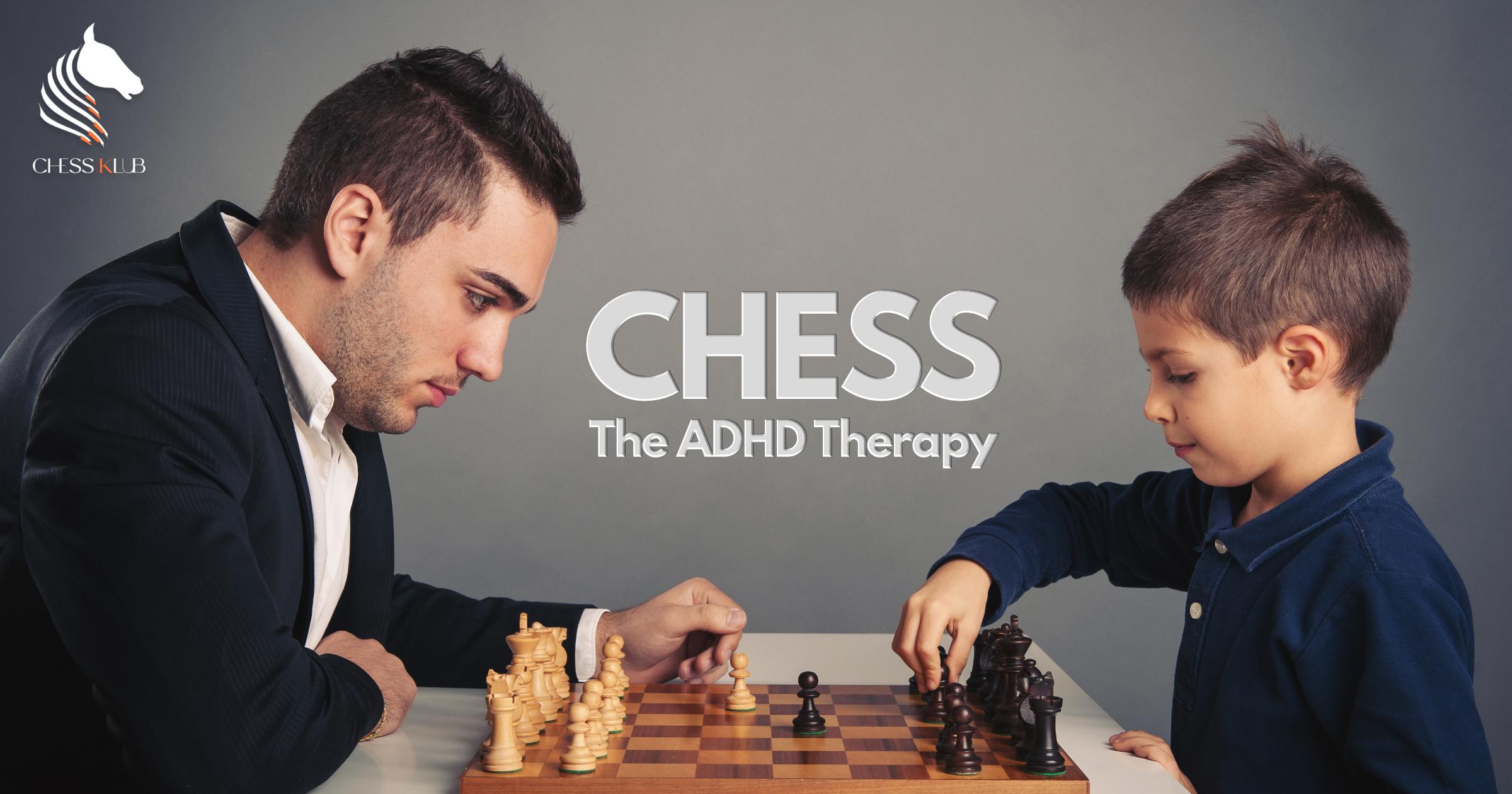11 Nov Playing Chess – A Therapy for ADHD in Children and Adults?
ADHD or Attention Deficit Hyperactivity Disorder has been around for almost as long as we have existed. But most people live on with it as just another behavioral trait that makes them unique. Struggling with a reading assignment that you were not interested in, or feeling like jumping around right before an important test- commonly termed as nerves.
ADHD in its present form has been a rampant issue, especially in recent times. It is a cultural phenomenon and is a daily struggle for most parents of young kids today.
Every overly hyper child is a potential ADHD case of varying degrees.
In some kids, the issue is very real, and though it’s still a matter of debate whether ADHD is actually a harmful disease or merely a natural process that occurs as the child goes through various phases of maturing into an adult.
A Growing Epidemic Amidst Pandemic
A mean worldwide prevalence of ADHD of 2.2% overall (range: 0.1–8.1%) has been estimated in children and adolescents (aged <18 years). The mean prevalence of ADHD in adults (aged 18–44 years) from a range of countries in Asia, Europe, the Americas, and the Middle East was reported as 2.8% overall (range: 0.6–7.3%).
The high rate of ADHD diagnosis is a matter of concern for parents and teachers and medical intervention through prescription pills and drugs for children without a complete understanding of the health and behavioral consequences is truly a matter of worry. In adults too, ADHD symptoms have been known to crop up.
What is ADHD?
ADHD is a spectrum disorder.
In other words, what symptoms one person may exhibit are completely absent in another. But still, there is a lot of common ground. You may not get distracted while doing complex work, or playing a game of chess, like most others. But you simply lose the ability to calculate 1 or 2 moves ahead. You just stare at the chessboard, eyes glazed over, waiting for your opponent to move.
It almost feels like playing chess when you are sleep deprived. This inability to focus is a type of ADHD that doesn’t manifest itself with the classic symptoms or definition. But it is ADHD nonetheless and this type is more commonly associated with adults.

Source : PearsonAssessments.com
Have you been noticing a pattern of abandoning several projects prematurely?
You decided to do a garage makeover, then left it halfway or decided to have a kitchen garden, right in your backyard but now you are not motivated enough?
Many things started but few finished or feel like you are fighting World War III when starting a new project, feeling inattentive most times, feeling bored with stuff that you used to spend hours doing but now it feels like yet another mental chore- these are all signs of ADHD. Has the present Covid-19 crisis and the forced locking inside your homes has made you stand in one place for a few minutes, mulling over ideas on what to do and then discarding them because they felt like too much effort as soon as you thought of them?
Sounds familiar?
The easiest way to explain this inattentiveness in everything that was erstwhile fun and interesting is classic ADHD.
In chess too, sometimes, you play a move, and you begin to calculate a tactical sequence, and suddenly your concentration breaks with the player on the next table.
You then find it difficult to refocus on the game.
But for some people, or maybe people playing from their homes, there is no distracting, and hence nothing to focus on. They simply lose focus to “nothing”, giving the impression that they have glazed over. It is as much a problem of behavior as with the adrenaline in their brains. You would often find chess players in tournaments playing a great game, only to watch them painfully losing their ability to focus by the second game.
But many have been playing consistently but suddenly go on losing streaks with obvious mistakes, judgemental blunders, and you know something is wrong, but are just not sure what is!
Checkmate, ADHD!

Source : ResearchGate.net
A study by Lebanese University Professors for Social and Behavioral Sciences aimed to investigate the effect of training chess on the concentration and listening language scores of students with ADHD aimed to answer a few pertinent questions:
- Does playing chess help students with ADHD in strengthening the period of concentration?
- Does playing chess improve the concentration ability (less forgetting, less losing of materials/tools…) of students with ADHD?
- Does playing chess and learning its rules improve the listening skills of students with ADHD?
Although the researchers state that the findings can not be generalized owing to the smaller sample size, they do have concluded some interesting findings:
- Training students with ADHD on playing chess has affected their concentration period and skill.
- It was shown that students take a longer duration until they started exhibiting undesirable and unacceptable behaviors. Hence, students need to learn chess as it trains them to stay longer on task, control their actions, and maintain focus.
- Results also revealed an improvement in the concentration tasks and the listening language scores at the end of the intervention. After the analysis of the results based on self-regulation, decision-making, and attention theories, it was concluded that the questions posed at the beginning of the study were all answered in the affirmative and proved according to its chosen sample of students.
Chess and Brain Functions
It is pretty evident how chess can help people suffering from ADHD.
We have established how scientific research points to the positive effects of chess on brain functions in our previous blog “5 Scientific Reasons Why Your Child Should Learn Chess”.
Chess activates critical areas of the brain involved in planning, judgment, memory, and visual processing. It activates both the left and the right hemispheres of the brain. If ADHD affects the very same parts of the brain associated with thinking, paying attention, and planning, then Chess as an effective interventional therapy for ADHD is a viable ‘no-drug’, therapy-based treatment for ADHD.
- Chess helps develop focus, concentration, and increased attention span.
- Chess helps develop memory and encourages the development of thinking skills, analysis, logical thinking, scientific thinking, problem-solving, and visual thinking or “visualization”.
- Chess helps build character and self-esteem! Healthy self-esteem comes from knowing that you can do hard things because you have done them.
- Chess is an inter-generational, cross-cultural, social activity.
- Chess is a lifetime group activity as well. There are many organized group chess activities with organized team events as well as more traditional tournaments.
- Chess helps develop imagination and creativity and helps to increase foresight and visualization.
- Chess fosters independence, reinforces personal responsibility, and teaches the acceptance of consequences.No “luck” in chess; no “hidden moves”. No teammates who can help you play.
Chess is a game that requires focus, and it is indeed an easy game to focus on for long periods for kids and adults alike.
You need substantial attention, focus, and concentration to achieve victory.
One small mistake, and you may ruin the chances of success. Therefore, the players have to be attentive and focusing not just on their next move, but also that of their opponents. You are forced to pay attention or you lose. The instant punishment/reward pattern is a proven way to improve any skill because players would rather pay attention and win than lose their focus and lose the game.
There’s more to it than meets the eye
To many, the understanding of chess is restricted to the title clash between Anand and Carlsen or merely a battle of wits. In the end, it is the art of winning small battles to prepare for big wars, using chess as a tool either to silence or stimulate a particular part of the brain. Chess is a powerful educational tool because practicing chess has a very positive impact on children’s’ intellectual development, general habits, developing self-control, and even other social and emotional skills.
While experts keep debating on classifying ADHD and managing its symptoms or finding the right treatment, it is clear that a multimodal treatment approach with early intervention is the best strategy. Practicing chess is remarkably beneficial and useful if introduced at the right time and with the appropriate methodology.




